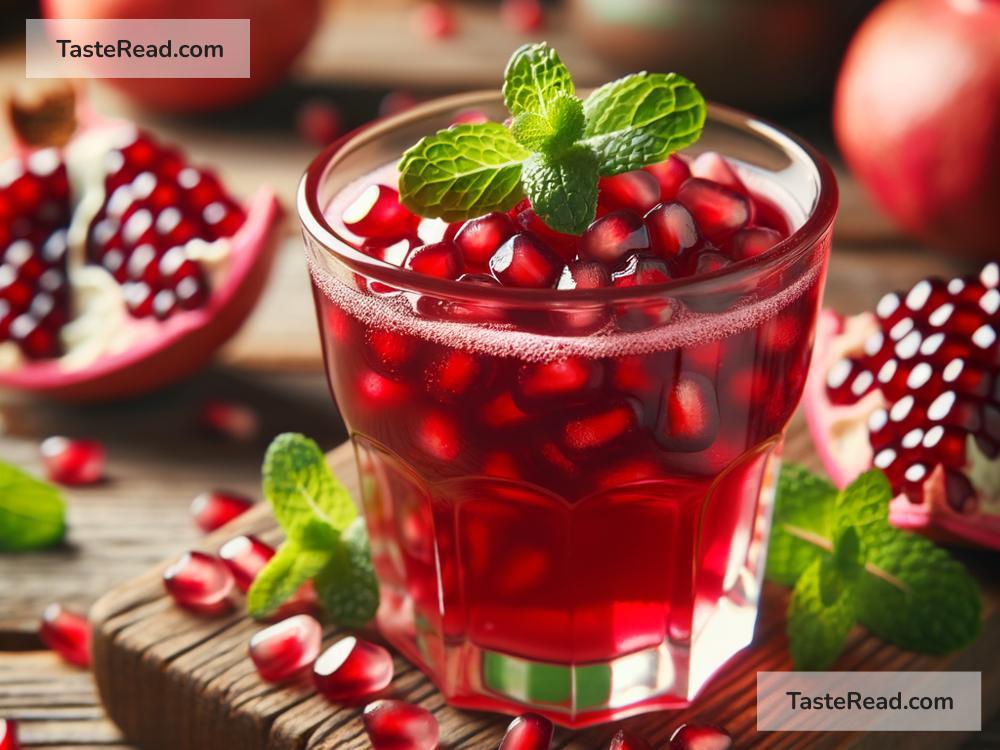The Surprising Truth About Pomegranate Juice
Pomegranate juice is often celebrated as one of nature’s healthiest drinks. Its deep red color, sweet-tart flavor, and reputation as a “superfood” make it a popular choice for health enthusiasts. But what is the real story behind pomegranate juice? Is it as good for us as people claim? Let’s dive into the surprising truth about this trendy beverage, all explained in simple terms.
What Makes Pomegranate Juice Special?
For starters, pomegranates are packed with nutrients. This fruit, loaded with tiny, juicy arils (the edible seeds), is bursting with antioxidants, vitamins, and minerals. Antioxidants are substances that help protect your body from damage caused by harmful molecules called free radicals. In simpler terms, they’re like tiny superheroes that fight off harm inside your body.
Pomegranate juice contains several types of antioxidants, including polyphenols. Polyphenols are powerful compounds that are believed to reduce inflammation, lower the risk of chronic diseases, and help with heart health. In fact, experts often say that pomegranate juice has more antioxidants than green tea or red wine—which is pretty impressive!
Benefits Backed by Science
Over the years, researchers have studied pomegranate juice to find out if it lives up to the hype surrounding it. While more research is needed, here are some science-backed benefits that make pomegranate juice special:
-
Heart Health
Pomegranate juice has been linked to better heart health. Some studies suggest that drinking it regularly can help lower blood pressure, improve cholesterol levels, and reduce the buildup of plaque in the arteries. This combination can support healthier circulation and lower the risk of heart disease. -
Rich in Nutrients
Besides antioxidants, pomegranate juice is packed with essential nutrients like vitamin C, vitamin K, potassium, and folate. Vitamin C is great for your immune system, potassium helps with muscle function and blood pressure, and folate is important for cell growth. -
Anti-Inflammatory Properties
Chronic inflammation is linked to conditions like arthritis, diabetes, and certain types of cancer. Pomegranate juice contains compounds that may help reduce inflammation, which can be beneficial for overall health. -
Brain Health
Some early research suggests that the antioxidants in pomegranates might also protect brain function as you age. They may help reduce memory loss and protect against neurodegenerative diseases like Alzheimer’s.
The Downsides You Should Know
While pomegranate juice offers many benefits, it’s not perfect. There are some surprising truths about this “superfood” that often go unnoticed.
-
Sugar Content
Natural fruit juice, including pomegranate juice, is high in sugar. Even though it’s natural sugar, consuming too much can lead to spikes in blood sugar levels, especially for people with diabetes. Just a single serving of pomegranate juice can have as much sugar as a can of soda! Drinking it in moderation is key. -
Calories
Because it’s so concentrated, pomegranate juice can be calorie-dense. If you’re watching your calorie intake or trying to lose weight, this is something to keep in mind. -
Price Tag
Ever notice how a bottle of pomegranate juice tends to be more expensive than other fruit juices? That’s because it takes a lot of pomegranates to make just one bottle, and the process is labor-intensive. While it’s good for your health, it might not be great for your wallet.
Is Fresh Better Than Bottled?
Another surprising truth about pomegranate juice is that not all products are created equal. Freshly squeezed pomegranate juice—made straight from the seeds—tends to have the most nutritional value and fewer additives. Store-bought juice, however, can sometimes be diluted, include added sugars, or undergo processing that strips away some of the antioxidants.
If you have the time and patience, you can make pomegranate juice at home with a blender and strainer. But for convenience, look for bottled juices that say “100% pomegranate juice” and avoid those with added sugars or artificial flavors.
Should You Drink It Every Day?
Pomegranate juice can be a delicious addition to your diet, but you don’t need to drink it every day to enjoy its benefits. Small amounts, like half a cup several times a week, can be plenty for most people. If you’re already eating a balanced diet full of fruits and vegetables, pomegranate juice can simply act as a nutritious bonus.
However, if you’re pregnant, have high blood sugar, or are taking medications for health conditions, you should consult your doctor before adding pomegranate juice to your diet. Pomegranate can interact with some medications, including certain blood thinners or cholesterol drugs.
Final Thoughts
Pomegranate juice is a wonderful drink that can boost your health in many ways. It supports your heart, fights inflammation, and delivers essential vitamins. But it’s important to remember that it’s not a magic cure for all health problems. Like most things in life, the key is moderation.
Whether you love drinking it on its own, mixing it into smoothies, or using it to make salad dressings, pomegranate juice is a tasty way to enjoy the benefits of this nutritious fruit. Just be mindful of the sugar content and choose high-quality options when buying bottled juice.
Enjoy the goodness of pomegranates, but don’t forget to balance your choices with other healthy foods. That’s the real truth about pomegranate juice—it’s good, not perfect, but definitely worth savoring in the right amounts!

